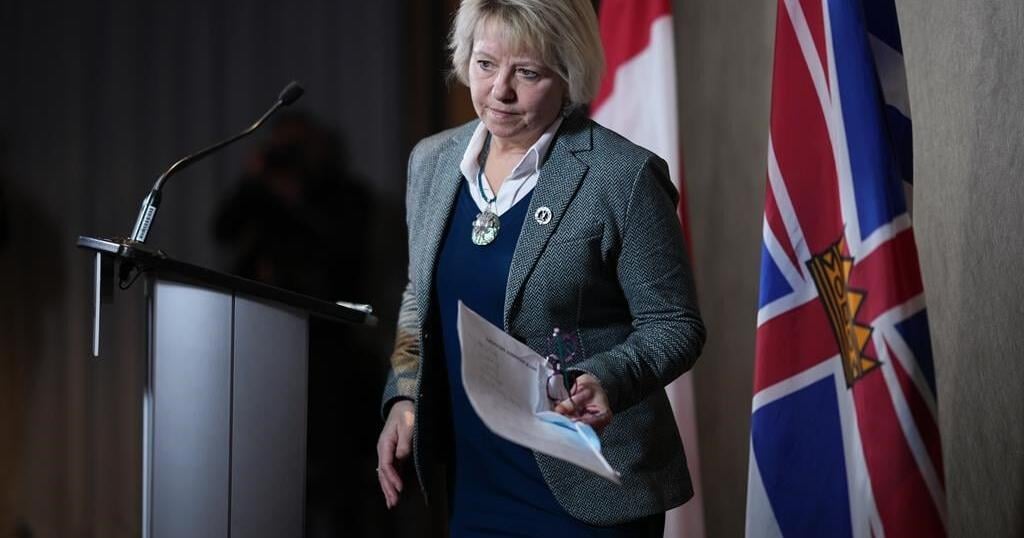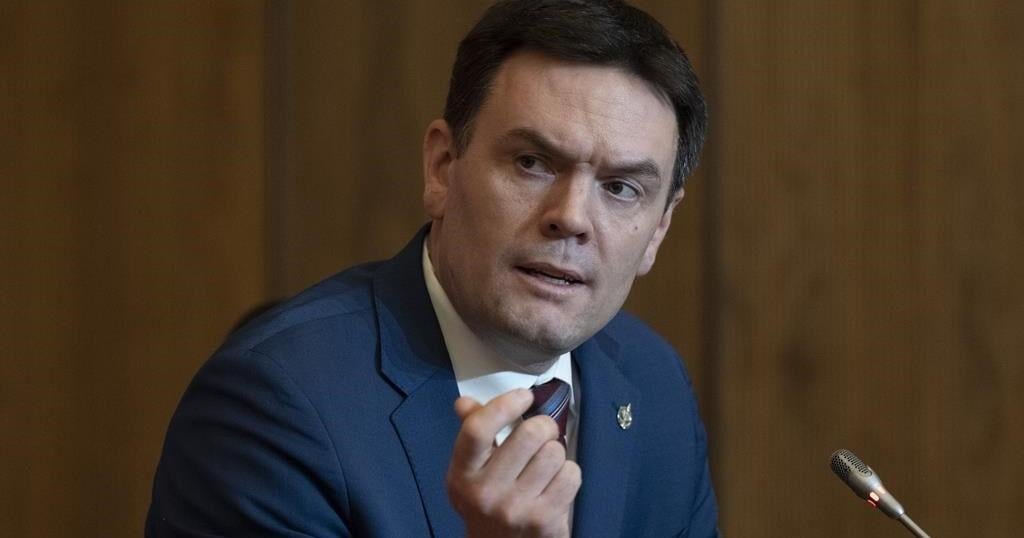VANCOUVER – British Columbians go to the polls on Saturday after a too-close-to-call campaign that saw David Eby’s New Democrats and John Rustad’s B.C. Conservatives tangle over housing, health care and the overdose crisis — as well as plastic straws and a billionaire’s billboards.
Forecasters say election day will be soaked in several parts of the province by heavy rain from an atmospheric river system.
But the campaign has already been drenched in negativity, with Eby and Rustad each devoted to telling British Columbians why they shouldn’t vote for the other.
The NDP’s election platform mentions Rustad more than 50 times, compared to only 29 times for Eby, while the B.C. Conservative platform names Eby 50 times, and Rustad only 11 times.
“I hope we never see another election like this,” Eby said this week in Nanaimo, describing the tone of the campaign where he felt compelled to tell voters about controversial public statements made by Rustad and some of his candidates.
“We don’t call people who are gay ‘groomers,'” he said. “We don’t tell Indigenous people that what they experienced in residential schools wasn’t real. We don’t propose that health-care professionals be put in front of an international tribunal similar to the trial of the Nazis called Nuremberg 2.0.”
Rustad, who campaigned in Nanaimo on the same day Eby visited the Vancouver Island city, said the NDP leader has consistently attempted to shift focus away from what he says are the real issues facing the province — mismanagement of the economy, the crumbling health-care system and the ongoing drug overdose crisis that has resulted in more than 15,000 deaths since 2016.
“I don’t know why, I guess as premier he thinks it’s OK to be lying to the people of B.C.,” said Rustad. “The premier of a province like B.C. should be able to be out, being straight up with people and telling them the truth as opposed to lies.”
Regardless of the outcome, the election will go down as a sea change for B.C. politics, with the Conservatives poised to either form government or become the official opposition, after the implosion of the BC United party under Kevin Falcon, who halted his party’s campaign to support Rustad and avoid centre-right vote splitting.
Polls have put the NDP and the B.C. Conservatives locked in a close battle. It’s a remarkable turnaround for the Conservatives, who won less than two per cent of the vote in the last provincial election.
Eby and Rustad spent Friday making last-ditch pitches for support in vote-rich Metro Vancouver.
Eby started in Coquitlam, while B.C. Conservative Leader John Rustad was scheduled to be in North Vancouver.
“We have left nothing on the table,” said Eby, adding every vote will count Saturday. “I have really no regrets about the campaign.”
On Friday, the Conservatives said that if elected they would launch “a full public inquiry” into the use of taxpayer money to buy drugs on the dark web.
That is a reference to a so-called “compassion club” that was operated by the Vancouver-based Drug User Liberation Front to buy drugs including methamphetamine, cocaine and heroin, test it for safety and then sell it to its members.
The club was ultimately shut down and the group’s founders arrested and charged with trafficking.
“This inquiry will seek to uncover who knew what, when they knew it, and what actions were or weren’t taken by the New Democrats, including Premier David Eby,” the party said in a statement.
Rustad was not available to reporters on Friday, but he was holding photo opportunities in Metro Vancouver.
Green Leader Sonia Furstenau was in Victoria, where she is looking to capture a seat in the NDP stronghold of Victoria-Beacon Hill. She has acknowledged the Greens won’t win the overall election, but is hoping to retain a presence in the legislature where the party currently has two members.
The campaign’s only televised debate saw Furstenau tell voters that Eby and Rustad were more closely aligned than people may believe on issues including support for the fossil fuel industry and placing people with mental health and addiction issues into involuntary care.
The month-long campaign has featured regular controversies for the Conservatives surrounding past comments by Rustad and his candidates.
Rustad dropped several potential candidates before the start of the official campaigning period over extreme views posted on social media.
But during the campaign he continued to support Surrey-South candidate Brent Chapman, who called Palestinian children “inbred” and “time bombs” in a 2015 Facebook post.
Eby mentioned Chapman during visits to two mosques in Surrey.
“John Rustad and the B.C. Conservatives are standing with that candidate,” he said at the Guilford Islamic Centre. “They should have got rid of him.”
Eby said the NDP are running two Muslim candidates in the election, including candidate Haroon Ghaffar in Surrey-South against Chapman.
“It’s important to have diverse candidates in the legislature,” said Eby, adding B.C. has yet to elect a Muslim.
Eby faced tough questions from people at the mosque about teaching sex education at schools and the rise of Islamophobia.
Rustad also stood by North Coast-Haida Gwaii candidate Chris Sankey, who suggested vaccines caused AIDS by posting about “Vaccine Acquired Immunodeficiency Syndrome” during the COVID-19 pandemic.
Then there was Vancouver billionaire Chip Wilson, co-founder of the Lululemon athletic clothing line.
Wilson injected himself into the campaign with a series of anti-NDP billboards outside his waterfront Vancouver home, located in Eby’s Vancouver-Point Grey riding.
Eby and the NDP embraced the moment, saying Eby was on the side of ordinary people in B.C. struggling to make ends meet and not the owner of a home assessed at more than $81 million.
Rustad said he supported entrepreneurs like Wilson, but they couldn’t expect a break on their property taxes.
Rustad’s campaign promise to reverse a ban on plastic straws prompted Eby to begrudgingly agree that “paper straws suck,” but he suggested the B.C. Conservative leader was trying to stir up controversy by diverting attention from major issues facing the province.
Election day coincides with an atmospheric river system that is dumping heavy rain across much of the province.
Furstenau used the weather event to highlight her party’s climate promises, saying the Greens are the only party that offers a serious response to the climate crisis.
“It’s very interesting the timing of an atmospheric river arriving right on the moment of this election campaign, an election campaign where we have one party led by a climate denier and another party led by a climate delayer,” she said.
This report by The Canadian Press was first published Oct. 18, 2024.
























